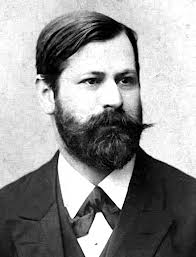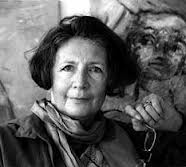Words are such interesting things. If you look up ‘rape’ in the Oxford Universal Dictionary, you will find ‘grasping’ as the essential action of the verb. Our word ‘raptor’ applies to birds of prey, which grasp their victims and carry them off.
The victims are their food. Many raptors will eat dead animals, but most prefer fresh kills. This is Mother Nature’s way of keeping things in balance; “life feeds upon life” as Huston Smith was fond of saying.
The more familiar use of ‘rape’ is to grasp, carry off by force. In the early 1700s this applied to taking goods, so it was essentially robbery, or plundering villages. Before that (in 1481) it meant violation or ravishing of a woman. Taking by force, grasping an object or person, implies a rather violent interaction, not a choice on the part of the victim, who might be a woman, man, or child. The curious part is the now rare use of the word ‘rape’ “to transport, ravish, delight”. Maybe that’s where the rapist comes up with expressions like, “she (he) was asking for it, wanted me to do it”, “they enjoyed it”. This aspect of our use of language lingers on rather unconsciously I suspect.
The word “psycho” is slang. It refers to someone who is mentally ill, often seriously disturbed, perhaps a psychopath. Its roots are Greek in origin. Psyche is the soul and pathos means suffering. Someone who is into healing (therapy) the soul (psyche in Greek) is called a psychotherapist. Psychotherapists treat psychopaths, or at least one would think they would. Freud wouldn’t, he preferred neurotics, especially young, rich women who could be transformed by confronting their subconscious sexual desires.
Psychotherapy required lots of sessions, sometimes five times a week, if you were going to work with Freud. He did work with men who were rich enough to pay his fees. But one thing he didn’t do is believe his patients were raped by their fathers, mothers, or caregivers. Well, he did at first. That is what his patients said, that they were molested by their grandfather, father, mother, uncle, brother, sister when they were children. Those were his original findings. This data, which was derived from individual case studies, was published in 1896. People were scandalized by his theory. He was ostracized by the medical profession and polite society. The rejection he experienced was painful I imagine, way too much to bear, no clients, friends or colleagues with whom to converse. The pain must have been excruciating for a Jewish MD in Vienna at the turn of the century. So he revised his thinking, admitting his error.
Freud published his revised theory a year later, in 1897. His patients, he reasoned, weren’t sexually molested or raped by their caregivers, but they wanted to be. These stories told by his patients were, under closer analysis, mere fantasies, childhood wishes that the parental figures would penetrate them, ravish, transport, and delight them. Actually the child was to blame all along; they made up these stories, unconsciously of course, they weren’t real events. No rape, no molestation, just fantasies. Freud had to admit that his initial beliefs were wrong. His humble revision was well received. His apparent turn of conscience proved to be successful. Everyone was happier, accepting, enlightened by Papa Freud. And his practice thrived. Ninety years later, one of his trained analysts, Alice Miller, rediscovered through her own practice and that of the young interns she was supervising, that Freud’s 1896 version was correct.
Circling back to the beginning on the wings of the raptor, we notice, from high above, that we have analyzed (broken apart) our victim, separating it into pieces. Next we must put the pieces back together again. This is the magic part. We have separated the subject matter into its components and now must synthesize them. “Psycho the rapist” combined forms “psycho therapist” or “psychotherapist”. Knowing that, why would anyone want to call herself a psychotherapist? Obviously, because of the history and practice of the honorable science founded by Freud, right? But what about the unconscious or subliminal way people might see the word analytically? What would be the effect of seeing the pieces when looking at the word? My friend and word raptor, the Raven, called this to my attention last week. I had never noticed what was lurking in the word ‘psychotherapist’. Makes me wonder why people are attracted to various forms of therapy.
Certainly there are very few people who know about Alice Miller and her work.
But isn’t it interesting that what she came away with, after two classical Freudian analyses, was an awareness of being raped? Intellectually raped that is, by trying to bend her patients’ stories so that they would fit into Freud’s theories. She was a willing victim of theoretical rape, of believing what the father figure (authority) told her was true. Luckily for her and for psychology, Alice questioned authority and decided to stop the child abuse. During her final years she focused on changing parents’ ways of disciplining their children in the hope of healing the soul of humanity.
Even intellectual rapists can change. It might take sixty years for people to wake up. But there are some who do, who look back at the damage they caused with regret, and decide to do something about it. Alice Miller was an heroic soul. She found a way to access her feelings, which were hidden by Freudian analysis, and remember how her father had molested her, her mother had abused her emotionally, and how she had emotionally abused her children. These were hard lessons to learn, which were interestingly brought to the surface by her (unconscious) paintings. She started noticing images in her paintings which disturbed her conscious self. Her inner child had found a non-verbal way to communicate with the adult self, who in turn was able to seek the healing she needed. Alice applied her new awareness to her relationships with her adult children as well as looking at historical people’s memoirs with an eye to the childhood abuse they suffered. She brought a fresh and bracing winter breeze into the world of psychotherapy. 
We all have benefited by the old lady’s courage and her published work. Bravo Alice! Thanks for looking deeply into the Looking Glass.
For a look at how Jungian Therapy is different from the Freudian approach check out Whitmont’s Symbolic Quest.




Thank you for this very informative piece.. I have spent part of this year studying the work of Freud / Jung as part of a Transpersonal Counselling Diploma. In this context we were very critical of Freud but I never spotted that lurking undertone ‘psycho-the-rapist’ either. What a fascinating new layer to think about!